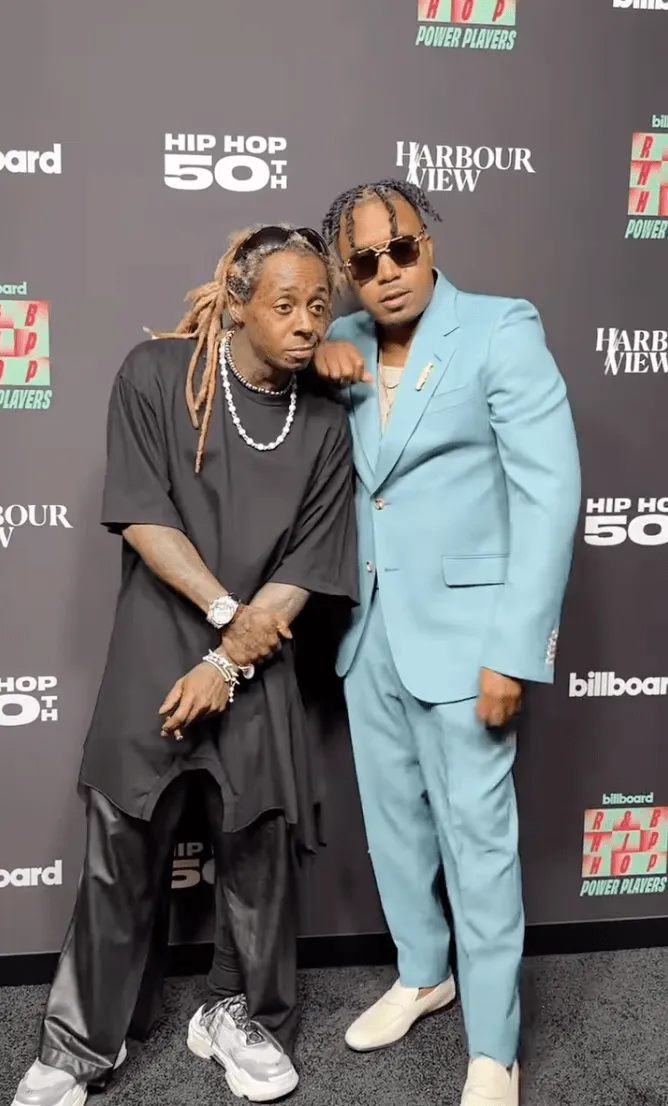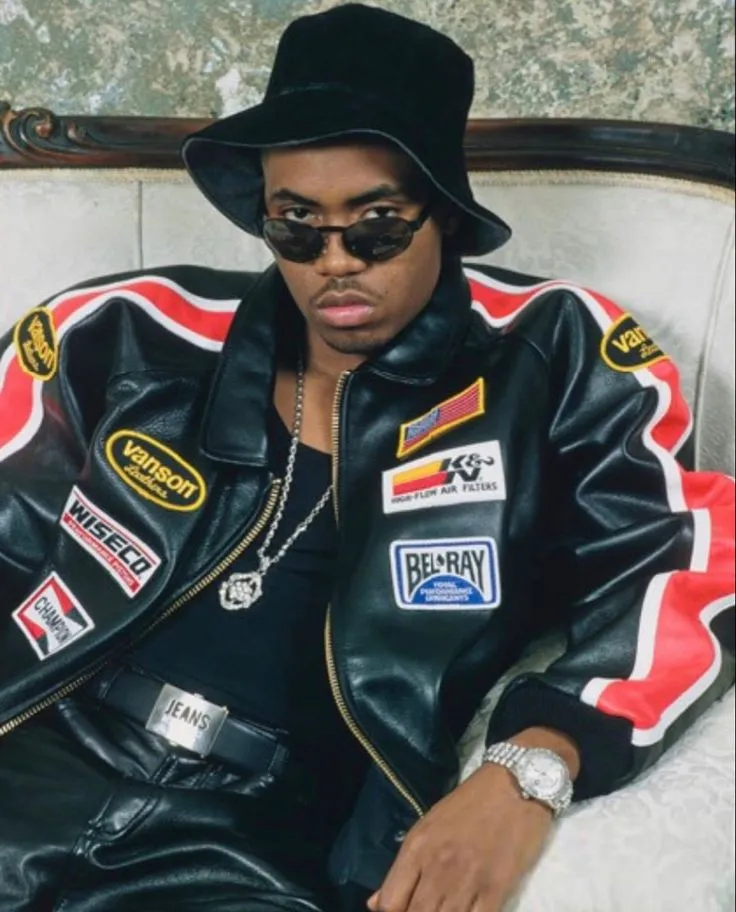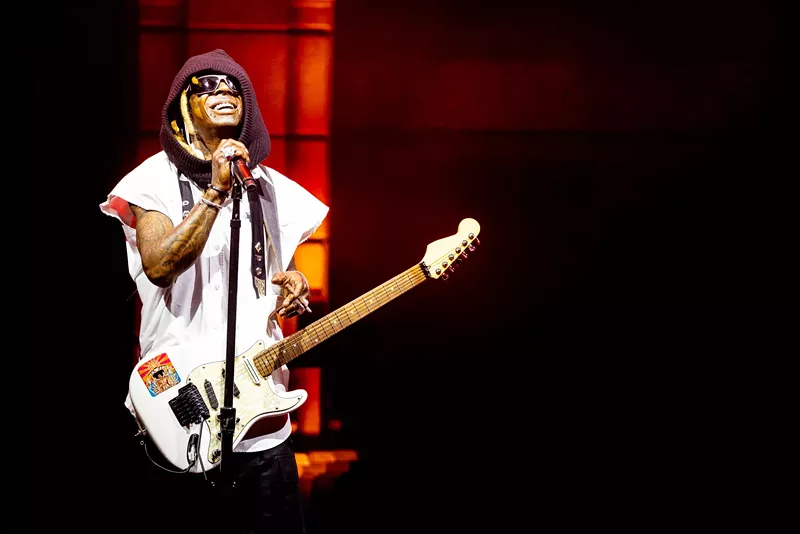

Nas wrote ‘Illmatic’ — the most legendary album in hip-hop history, but is Lil Wayne the one who turned hip-hop into his own empire?
Hip-hop debates never die. They evolve, get louder, and ignite new fire every time fans revisit the question: Who is truly the Greatest Rapper Alive? For years, two names have kept resurfacing — Nas, the lyrical genius who gave the world Illmatic, and Lil Wayne, the mixtape king who reshaped mainstream rap into an empire of punchlines, metaphors, and influence. One is revered for poetry that still feels timeless, the other for shaping the very sound and swagger of the last two decades. But as the argument heats up again, fueled by social media chatter and fan-driven comparisons, it’s time to break down what makes this clash so explosive — and who really deserves the crown.
The Case for Nas: The Poet of Hip-Hop’s Golden Era
Let’s start with Nas, because you cannot have a conversation about rap greatness without bringing his name up. When Illmatic dropped in 1994, it wasn’t just an album — it was a cultural earthquake. Critics still call it the most perfect rap debut ever, and fans revere it as the Bible of East Coast hip-hop. With vivid storytelling, intricate rhyme schemes, and street wisdom beyond his years, Nas instantly set the bar for what rap could be: literature, philosophy, and raw street reality wrapped into one.
But Nas didn’t stop at Illmatic. Across his decades-long career, he’s released classics like It Was Written, Stillmatic, and God’s Son, and even in his 40s and 50s, he delivered a Grammy-winning run with the King’s Disease trilogy. Unlike many rappers whose careers fade after a few years, Nas has remained relevant, respected, and lyrically sharp. He’s often described as the Shakespeare of rap, someone who speaks not just to the moment but across generations.

Fans argue that Nas embodies the pure artistry of hip-hop — the kind that isn’t always about radio hits or club anthems but about timeless verses that live forever. In short, Nas represents the soul of rap.
The Case for Lil Wayne: The Mixtape Monster Who Became a Blueprint
Now, let’s flip the script. Enter Lil Wayne, the self-proclaimed “Best Rapper Alive.” While Nas gave us a flawless debut, Wayne built his empire brick by brick, verse by verse, mixtape by mixtape. From his early days with the Hot Boys to becoming the face of Young Money, Wayne changed how we consume and define rap stardom.
Wayne’s mixtape run in the 2000s remains unmatched. Dedication 2, Da Drought 3, No Ceilings — these weren’t just projects, they were cultural movements. Every rapper wanted to be Wayne, every fan memorized his quotables, and every radio station couldn’t escape his hooks. By the time Tha Carter III dropped in 2008, Wayne wasn’t just dominating hip-hop, he was the sound of mainstream music itself.
Beyond his own catalog, Wayne’s influence spread through an entire generation of artists he mentored. Drake, Nicki Minaj, Tyga — all owe part of their superstardom to Wayne’s vision and platform. The very DNA of today’s rap game — punchline-heavy flows, autotuned melodies, larger-than-life personas — carries his fingerprints.
For Wayne supporters, the argument is simple: influence equals greatness. And no one in the last two decades has influenced hip-hop culture more than Lil Wayne.
Artistry vs. Influence — The Heart of the Debate
Here’s where things get messy. Nas vs. Lil Wayne isn’t just about albums, hits, or even lyrics. It’s about what fans value most in hip-hop.
-
If you believe rap should be timeless poetry, Nas wins. His catalog speaks to deeper truths, his bars age like fine wine, and his focus has always been on substance over flash.
-
If you believe rap should push culture forward, Wayne wins. His ability to innovate, inspire, and spawn an entire generation of artists makes his case impossible to ignore.
This is why the debate gets so heated online. It’s not really about who sold more records (though Wayne has dominated that lane). It’s not even about who has more classic albums (Nas holds that argument). It’s about what fans want from a “greatest rapper.” Do they want the philosopher or the innovator? The poet or the architect?

The Generational Divide: Old School vs. New School
Another reason this debate never dies? It’s a reflection of the generational split in hip-hop fandom.
Older fans, who grew up on 90s boom bap, see Nas as untouchable. They remember hearing Illmatic for the first time, feeling like rap had finally arrived as a serious art form. For them, Nas is not just a rapper — he’s a symbol of when the genre was pure, authentic, and deeply connected to storytelling.
Younger fans, especially those raised in the 2000s and 2010s, grew up in the era of Wayne. They witnessed his run when he was dropping verses on every remix, every mixtape, and flooding the game with punchlines that became everyday slang. For them, Wayne isn’t just a rapper — he’s the soundtrack of their youth, the reason their favorite artists even exist.
This generational divide fuels the fire. Each side claims their “GOAT” as the definitive one, but in reality, it’s a battle of values shaped by time and memory.
Numbers Don’t Lie — But Do They Matter?
Let’s talk numbers, because no debate about rap greatness is complete without stats.
-
Nas: Multiple platinum albums, one Grammy win (long overdue, in the eyes of many fans), and recognition from critics as one of the greatest lyricists of all time.
-
Lil Wayne: Over 120 million records sold worldwide, five Grammys, and countless features and hits that cemented his dominance on the charts.
On paper, Wayne has the bigger commercial legacy. But Nas has the critical acclaim that Wayne’s catalog doesn’t always enjoy. This begs the question: do sales and streams make someone the greatest, or is it about artistry and lyrical depth?
Cultural Legacy — Who Stays in the Conversation?
At the end of the day, greatness isn’t just about bars, hits, or stats. It’s about cultural legacy. Who will future generations look back on and call the true architect of hip-hop greatness?
Nas will always be remembered as the literary genius of rap, the man who elevated the genre to high art. Wayne will always be remembered as the game-changer, the one who reshaped rap into the global powerhouse it is today.
Both legacies are secure. But only one can wear the crown. And that’s where fans will keep fighting, because the answer isn’t clear — and maybe it never will be.
Fans Are Divided — And That’s Why It Matters
Scroll through any Twitter thread, TikTok comment section, or hip-hop forum right now and you’ll see the same fiery exchanges:
-
“Nas is untouchable, nobody’s pen is sharper.”
-
“Wayne’s influence makes him the GOAT, period.”
-
“Illmatic changed rap forever.”
-
“Carter III ran the world — don’t act like it didn’t.”
This fan energy is proof that hip-hop is still alive and kicking. Debates like these remind us that rap isn’t just music, it’s a living culture. The fact that two rappers from different eras can spark this much passion decades later? That’s the true mark of greatness.

So, Who Really Deserves the Title?
Here’s the truth: there may never be one answer. Nas and Lil Wayne represent two different visions of hip-hop greatness. One built on poetry, the other on innovation. One revered for storytelling, the other for influence.
What makes this debate so powerful — and so viral — is that fans aren’t just talking about music. They’re talking about themselves, their values, their history with rap, and what they want the culture to represent.
So maybe the real answer isn’t Nas or Wayne. Maybe the real answer is that hip-hop is big enough for both legacies to coexist, and the fact that we still can’t stop talking about them proves their greatness more than any crown ever could.
Final Thought
The GOAT conversation will never be settled, and that’s exactly the point. Every time the question resurfaces — “Nas or Lil Wayne?” — fans get louder, hip-hop stays relevant, and new generations are introduced to the giants who shaped the culture.
But if you had to pick a side right now… would you go with the timeless poet who wrote Illmatic? Or the mixtape monster who built the blueprint for today’s rap superstars?
One thing is certain: the battle for the Greatest Rapper Alive isn’t over — and it may never be.


















